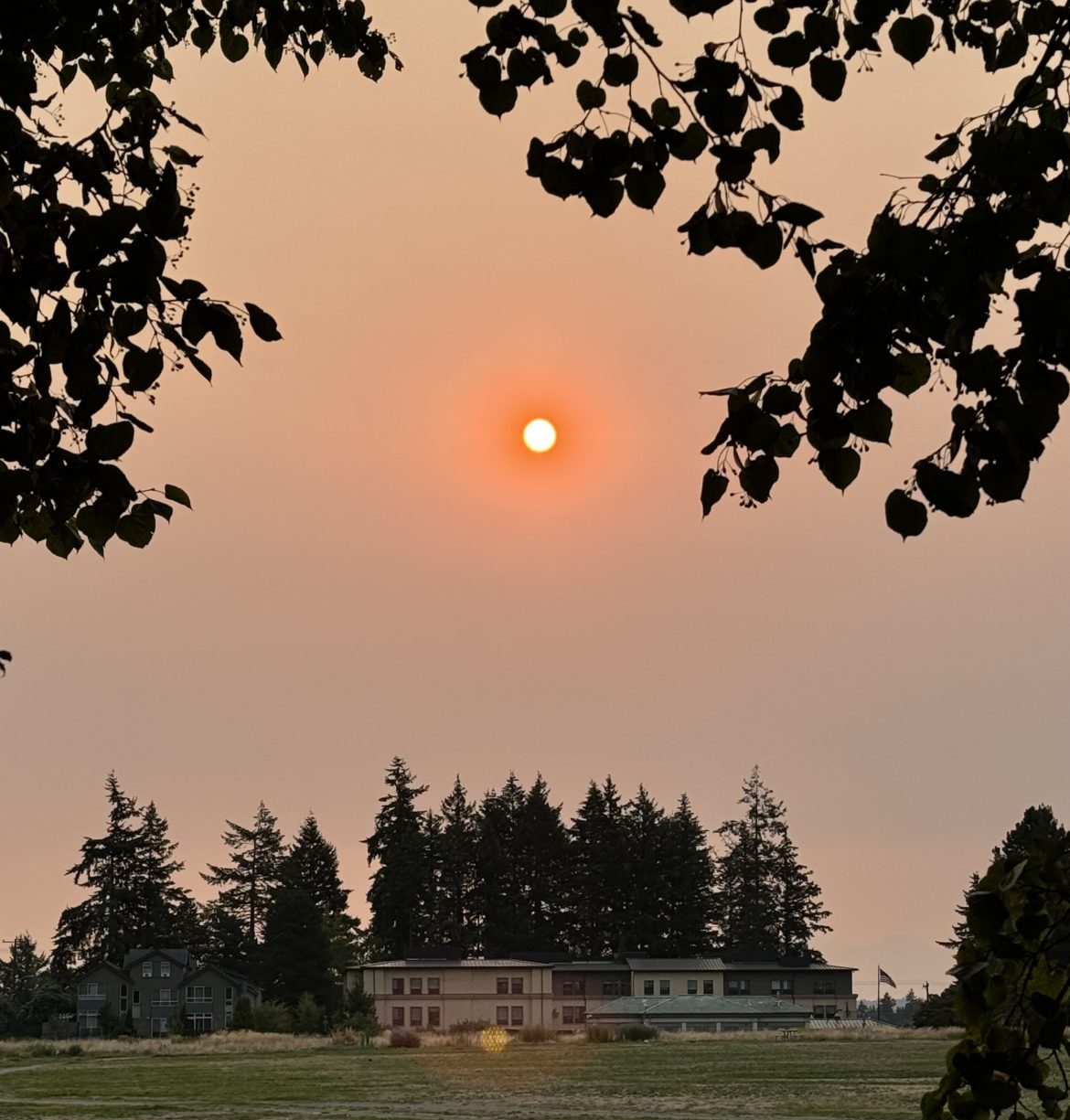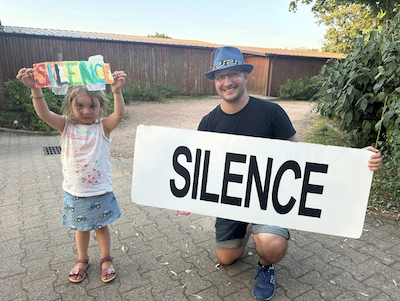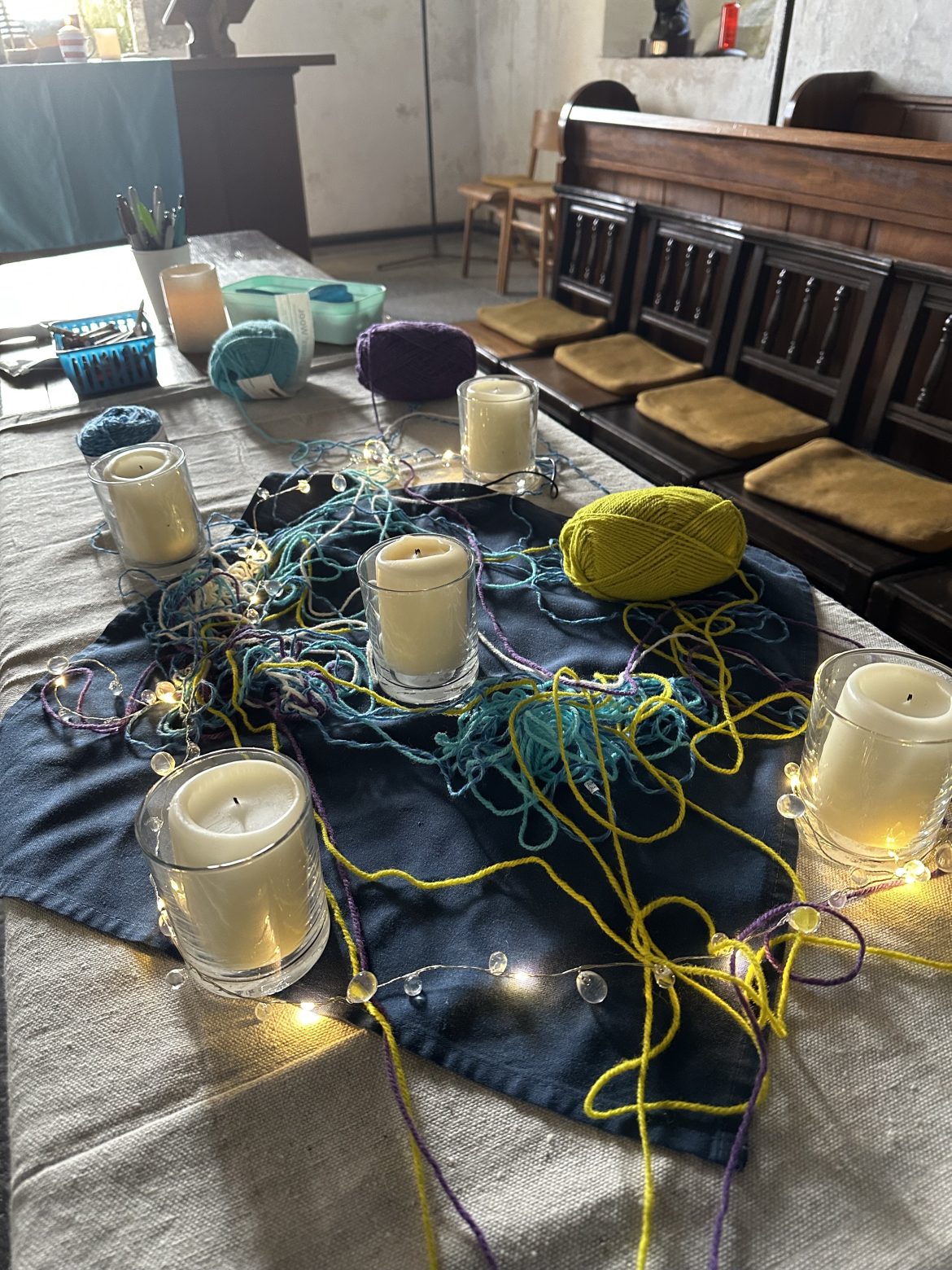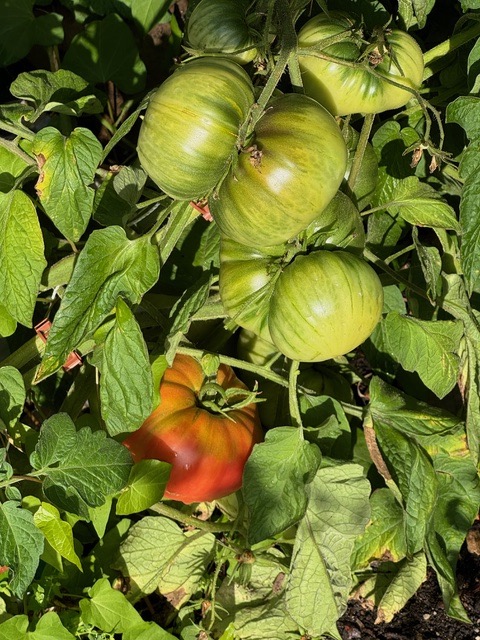by Christine Sine
Has it ever occurred to you to transform your favourite pastime into a spiritual practice? Many years ago when I was a fledgeling writer, I asked Phillip Yancey for advice on my writing. “Write to your passion”, he advised. His suggestion has never led me astray. I would give the same advice about spiritual practices: “Pray from your passion”. “Practice what you enjoy.”
Whatever you are passionate about, be it gardening or knitting, or composing music, you can, and I might add, should, transform it into a spiritual practice. And by that I don’t mean pray about what you are most deeply concerned about, I mean shape those things you are most passionate about into a practice for contemplative or devotional prayer. That doesn’t mean that every time you indulge in that activity you feel obliged to pray, but it does mean you can use that passion as a doorway into closer relationship with God.
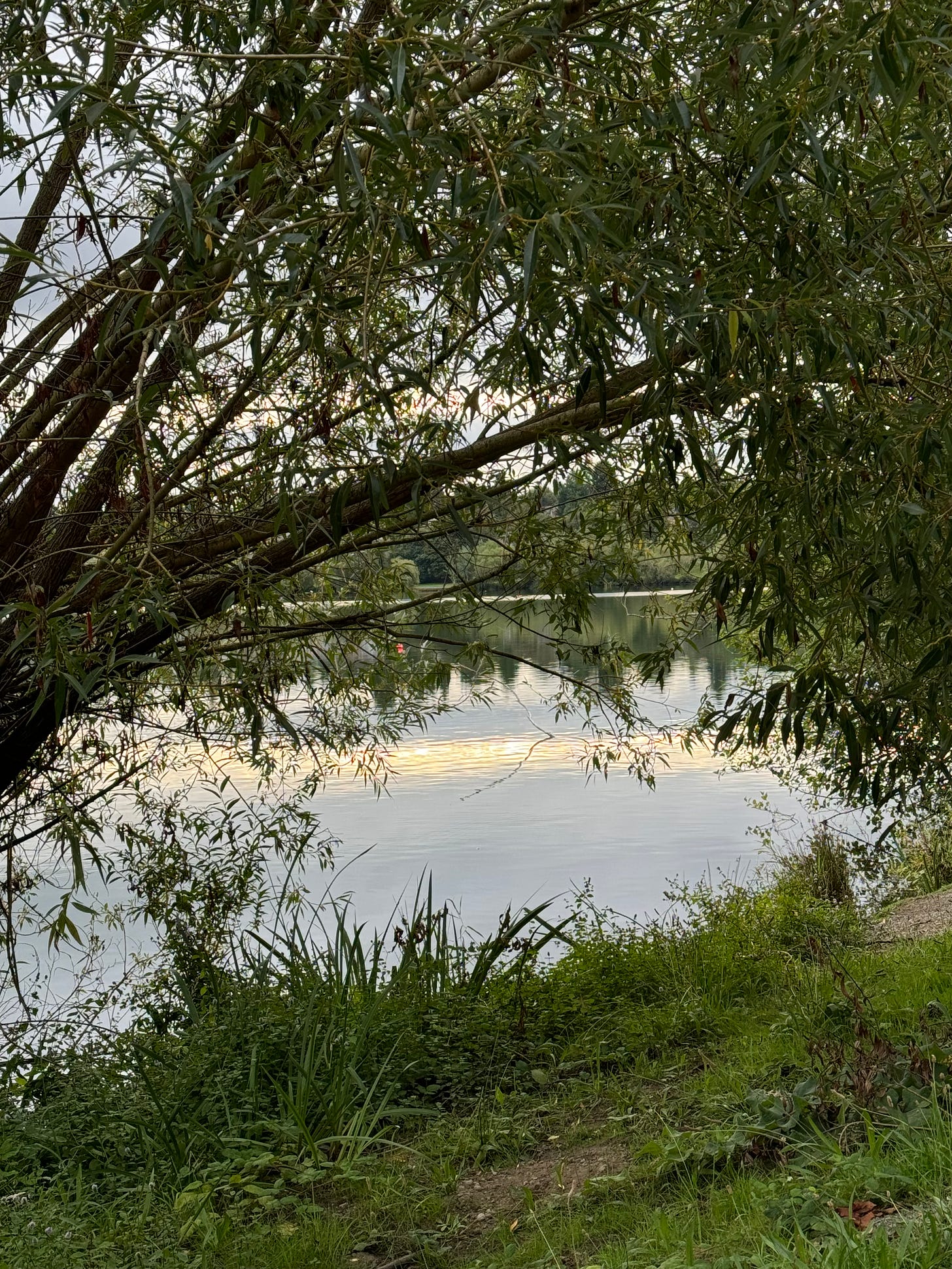
Over the years, I have transformed many daily activities into spiritual practices. Everything from walking in the rain to knitting and photography stir my creative juices and encourage me to craft new prayer practices. However, as a passionate gardener, nothing stirs me to pray quite as much as the garden does. Even an indoor plant with colourful patterned leaves or beautiful, delicate flowers can become the focus for my prayers. These activities often help me design templates for my prayers that has no proscribed boundaries and have the beauty of being both fluid and flexible. I have the freedom to continue modifying my practice to meet the needs of the moment. Today I might wander around the garden to pray. Tomorrow I might sit at my desk absorbed by the contemplative garden beside me.
All this helps keep my mind active, listening and learning. It encourages me to always be on the lookout for something new that God might want to point out. I am invited into a deeper relationship with my creator God who also has no boundaries or limits.
So today, I would encourage you, too, to think outside the box. Don’t settle for same old prayers and methods of prayer, design something that responds to your special needs for this season.
What is one thing you are passionate about, an activity you engage in frequently, that you would like to reshape into a spiritual practice? What about that activity inspires you and draws you towards God? Does it give you joy, bring peace or make you feel refreshed?

Close your eyes and imagine yourself engaging in that activity with eyes turned towards God. If this is a stationary activity do you own religious symbols like crosses, icons or labyrinths that could be incorporated into your new practice to help you focus? Do you have books or music you would like to use as part of your practice? Do you want to add candles or lights? Perhaps you would like to create a table centrepiece like Lilly Lewin suggests as part of her Holy Week practice. Or like me, you might like to create a meditation garden with plants and words that help you focus.
If you are thinking of a non-stationary activity you may find inspiration from lectio divina, visio divina or lectio tierra practices.
The sky is the limit where spiritual practices are concerned, but if you are designing a practice you hope to use for a season don’t rush the process. Here are a few tools that might help.
- Going on retreat – My husband Tom and I have just returned from our regular quarterly retreat. This set aside time for reflection and renewal is a great time to get creative and plan to refresh your spiritual life by developing a new practice.
- Consult a soul friend – “an intimate bond where two people opened their hearts to one another, sharing their doubts and fears, their struggles and successes, encouraging one another on the journey.” I am privileged to have several good friends who provide soul friendship for me, some of whom have done so for decades. It is part of what has given my faith resilience through the tough times I have passed through. They are always great go to people for advice when I suspect the ideas bubbling up inside me are meant to be shaped into a new practice.
- Have some fun – It is only in the last few years, and particularly as I worked on The Gift of Wonder, that I came to believe in a God who loves fun, laughs frequently and delights in me and whom I am created to be. According to play expert Dr Stuart Brown, “nothing lights up the brain like play”. He believes that play might be God’s greatest gift to humankind. Nurturing my relationship with this fun loving God through the creation of fun out of the box practices has refreshed my soul and given me permission to enjoy life in every season.
These out of the box practices continue to inspire me and draw me closer to God. I hope they will do the same for you.
NOTE: My Meditation Monday and other writings appear first on Substack. To receive these immediately and gain access to other articles join me on Substack.
Don’t forget to sign up for Celtic Spirituality 101 on Saturday
In preparing for our thinplace house church gathering this week, I found a great article on this week’s gospel reading. We tend to follow the lectionary at thinplace so we’ve been in the gospel of Mark this summer doing a lot of thinking about Jesus as BREAD and using bread as our prayer tool reminder.
An orthodox pastor, Father John Burnett, calls this part of the Gospel of Mark, The BREAD section of the gospel… We’ve seen Jesus feed 5000 and say that he is the BREAD that came down from heaven and we’ve heard him say that he is the BREAD we must eat to have eternal life. In Mark 7, Father John feels like Jesus asks…
“Who can eat the children’s bread?”
Which made me wonder who do we think or believe should be allowed to eat the BREAD of Jesus? Who do we stop from eating it, or stop from being with Jesus because of our prejudice, disbelief or doubt?
Father John says we really need to know more about the context of this passage and who the woman was who was asking for help.
READ the Gospel or LISTEN
MARK 7:24-37 THE MESSAGE
24-26 From there Jesus set out for the vicinity of Tyre. He entered a house there where he didn’t think he would be found, but he couldn’t escape notice. He was barely inside when a woman who had a disturbed daughter heard where he was. She came and knelt at his feet, begging for help. The woman was Greek, Syro-Phoenician by birth. She asked him to cure her daughter.
27 He said, “Stand in line and take your turn. The children get fed first. If there’s any left over, the dogs get it.”
28 She said, “Of course, Master. But don’t dogs under the table get scraps dropped by the children?”
29-30 Jesus was impressed. “You’re right! On your way! Your daughter is no longer disturbed. The demonic affliction is gone.” She went home and found her daughter relaxed on the bed, the torment gone for good.
31-35 Then he left the region of Tyre, went through Sidon back to Galilee Lake and over to the district of the Ten Towns. Some people brought a man who could neither hear nor speak and asked Jesus to lay a healing hand on him. He took the man off by himself, put his fingers in the man’s ears and some spit on the man’s tongue. Then Jesus looked up in prayer, groaned mightily, and commanded, “Ephphatha!—Open up!” And it happened. The man’s hearing was clear and his speech plain—just like that.
36-37 Jesus urged them to keep it quiet, but they talked it up all the more, beside themselves with excitement. “He’s done it all and done it well. He gives hearing to the deaf, speech to the speechless.”
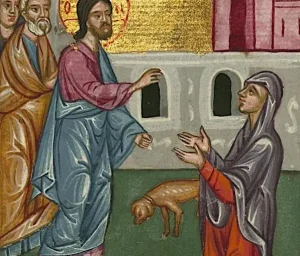
What do you notice from the passage that you didn’t notice before?
What do you wonder about? What questions come up for you as you listened to the passage?
What have you noticed about your ability to see or hear these days? Are you blind to anything? Like injustice, racism, etc? Ask Jesus to show you the things that are prevent you from truly seeing other people….maybe it’s your phone, maybe it’s work, maybe your fear? Let Jesus help you with this.
Jesus wants to go unnoticed when he arrives, yet he doesn’t get any time on his own. How have you felt like this before?
When you think about ears what do you think about first? Hearing? Listening? Music? Sounds in Nature? Noise? Consider all the times Jesus invites us to hear or listen to him. There are 2,114 Bible results for the word “hear” in the NRSV translation….Why is HEARING so important? Why do you think it’s important to Jesus?
We live in a world of US vs THEM just like in the days of Jesus. Yet Jesus is about healing…healing ALL people not just Jewish people. Who do you tend to exclude when you think about who deserves healing or who deserves grace? Why?
Consider this from Father John Burnett
“In Gentile territory, a woman approaches Jesus. Matthew simplifies and describes her simply as a “Canaanitess” (Mt 15.22), identifying her with Israel’s ancient enemies, but Mark describes her as a Greek, a Syrian, and a Phoenician (Mk 7.26)— that is, as a triple Gentile!— Moreover, she’s a woman. Mark is usually not this blatant. He is portraying her almost cartoonishly as a quadruple threat to Jesus, from the vantage point of the Israelite purity code.
A woman, a triple gentile, comes and begs a favor of a famous Jewish rabbi, directly challenging the purity code. And at this point that rabbi, fully conscious of his vocation as a leader and teacher, has only two choices. He MUST either ignore her or slap her down. Otherwise, he will not just lose face; he will even show that he is positively dishonorable, because he doesn’t care about the honor of his own people and his own God.”…
Now for her part, if Jesus ignores her, she will have no recourse but to slink away in shame. But if he engages her at all, he leaves himself open to a counter-challenge. And if she can top him, then he has to give her what she wants. The game is quite well known— sociologists call it “challenge-riposte”— and it’s common in honor-shame societies like that of Jesus. The form the game will take here is that of a “battle of proverbs”. She has challenged Jesus simply by making her desperate request. Jesus, who must either ignore her or make a suitable riposte, chooses to describe the situation of interest by means of a proverb, or at least by a proverb-like saying. If his opponent can find a more fitting proverb or gnomic saying to describe the situation, she wins. Can she do it?’ Fr, John Burnett
READ the whole Article here by Father John Burnett
How does this help you with this encounter ?
The Story continues….
“After his encounter of the Syro-Phoenician Greek lady, Jesus and his disciples take a very confusing itinerary: “And going out again from the coasts of Tyre they came through Sidon to the ‘Sea’ of Galilee along the middle of the coasts of the Decapolis” (7.31). This is something like going from San Francisco to Miami via Edmonton and down the Colorado. But all the places that Mark mentions on this wild ride are Gentile or mixed, and the point is, they end up in the Decapolis, the Ten Cities region on what Mark has already referred to as the “other side” (the west) of the “Sea” of Galilee (cf 4.35, 5.1). The Decapolis has a mixed but mostly Gentile population. Upon arriving in the Decapolis, “they”— evidently, Jesus’ followers— bring a deaf and dumb man to him (7.32-37). In this Gentile region, we may infer that the man is a Gentile. In this extended and interesting story, Jesus gives the power of hearing and speaking to a Gentile. In the Bible, “hearing” is not trivial. Every single day, every observant Jew pronounces these words: “Hear, O Israel, Yhwh is our God; Yhwh is One!” (Dt 6.4).”
John Burnett
I’m not sure I had noticed that both of these encounters involve healing a Gentile, an outcast, a non person in the Jewish culture of the day.
Made me think of all the people who are on the “outside” of who I believe should be inside.
It also made me think about my own need for healing…no so much physically right now, but emotionally and spiritually. I need eyes to see and ears to hear. Sometimes I am so deaf to the voice of Jesus. Or I’m just so stubborn that I don’t listen when I do hear from Him!
Where or how do you need healing today? Maybe it’s physical healing your need, or emotional, or relational. Talk to Jesus about this and ask him to touch you and bring that healing.
Isaiah 35:4-7
35:4 Say to those who are of a fearful heart, “Be strong, do not fear! Here is your God. He will come with vengeance, with terrible recompense. He will come and save you.”
35:5 Then the eyes of the blind shall be opened, and the ears of the deaf shall be opened;
35:6 then the lame shall leap like a deer, and the tongue of the speechless sing for joy. For waters shall break forth in the wilderness and streams in the desert; a the burning sand shall become a pool and the thirsty ground springs of water.
PRAY :
Jesus
Remove the wax from our ears that prevents us from hearing your voice
Remove the scales from our eyes that keep us blind to the beauty of ourselves, our world and the beauty that is in other people.
Lord, Give me ears to hear your words of love and eyes to see your gaze of tenderness.
I too often hear only myself and my fears, not your words of love and compassion, honor and care.
Heal this deafness in me!
Give us all ears to hear your still small voice that calls us each by name.
Give me ears to hear and help me to truly know that I am your Beloved.
Jesus
Give us eyes to see and ears hear to the cries of our world and that are not deaf to the cries of our friends and neighbors in need.
Forgive me when I fail to hear your voice and listen to your words of love for myself
and when I forget this is how you view everyone, with eyes of love!
Jesus
Forgive us when we fail to see you in the faces of other people especially when we miss your image in those we want to reject or dismiss out of hand.
Jesus we know that you have the words of life.
We know that you are the Bread that came down from heaven,
Give us today our daily bread.
Remind us that this is Bread that is for ALL people no exceptions!
You are that bread.
Help us to not be hoarders
but to be transformed by you
BREAD of life. AMEN
PRAYER PRACTICE:
Grab a Q-Tip swab to use as a prayer tool. Once upon a time at a National Youth Worker’s Convention, Rev. Kenda Creasy Dean gave everyone in the large audience of youth workers and volunteers a Q-Tip cotton swab to pray with. She asked us to consider the students who have opened our ears to hearing God in a new way. And she invited us to pray for these students. As an experiential prayer practitioner, I have always remembered this practice. And I’ve used Kenda’s idea for my own prayers when I clean my ears each day after showering.
Q-Tip Prayers by Lilly Lewin ( inspired by Kenda Creasy Dean)
When you use a Q-Tip, pray for the person/persons who help you hear from Jesus.Thank Jesus for them and ask Jesus to help them hear his loving voice today.
Next, take time to pray for the person/persons who need to hear from Jesus and about his great love for them.
Finally Ask Jesus to give you ears to hear him
To hear his still small voice
To hear him call you by your name and call you Beloved.
Ask Jesus to give you ears to hear the cries of the poor and the hurting and listen to them.
Ask Jesus to clean out your ears so that you can listen to those who need to be heard.
Jesus give us eyes to see and ears to hear as you do today … & everyday. Thank you for loving us just as we are! Amen 🙏
©lillylewin and freerangeworship.com
Art : Ilyas Basim Khuri Bazzi Rahib Jesus and the Canaanite Woman
by Emily Huff
My husband, daughter, and I had an incredible opportunity to spend time with the Taizé
community for a week this summer catching the rhythm of that wonderful community. For those
who don’t know about it, Taizé is an ecumenical Christian monastic community in southern
France. The community has around one hundred brothers, from both Catholic and Protestant
backgrounds, who come from about thirty countries around the world.
We so enjoyed the beauty of that place, the beauty of the people we met, and the beauty of the
space that Taizé helped us carve out for God.
Three times a day, everything stops in Taize, and everyone gathers for prayer through singing, a
Scripture reading in several languages, a long period of silence, and more singing. The songs
which are sung in many different languages are short refrains repeated multiple times. This
allows for everyone to learn the music, and it also allows for the words to wash over everyone
and sink deeper into everyone’s hearts.
During the silence (which only lasts 8-10 minutes), this time catches some people by surprise
because it is so different from services in many other parts of the world that don’t have this
contemplative space worked into the worship time. Some wonder what they are supposed to be
doing and wonder when it will be over as it can seem to go on forever. Is it supposed to be a
time of praying for a specific thing, a time of gratitude, a time of praising God, or a time of
confession? Or are people just supposed to sit mindfully and be quiet?
When I asked one of the brothers if they ever give much guidance for people during the silence,
he explained that they don’t want to dictate what happens during this time because there is not
a formula for prayer. They simply provide scaffolding with prayer services three times a day and
set aside time for everyone for silence to create space to meet God and to go deeper into His
love. They have candles and icons and music that are all gateways to enter God’s presence.
Brother Emile shared with me that he explained this part of the service to children by simply
saying that “God has something to say to you” so we make space to listen.
As a task-oriented person who has been conditioned to be productive with so much of my time,
this was a challenge for me at first to simply be quiet. But after a few days of being at the
services, I noticed my monkey brain stopped jumping around as much and God’s peace came
to settle me down. The silence allowed space for God to show up, and I began to trust the Spirit
to lead me through the time rather than me showing up with my agenda and lists to get through.
Mike Neelley shares that when we first begin to practice being quiet, it’s normal for us to be
distracted at first. His encouragement is that we can acknowledge the distraction and return to
the stillness time and time again. “We are training ourselves to return from our wanderings in
the far country of our thoughts back to the embrace of the Father” (Hearing the Heartbeat of
God, page 101).
Jason Santos points out in his book A Community Called Taize that the silence of Taizé acts
much like the sermon would in a traditional church service. It can be a time to meditate on the
Scripture that has just been read during the service and to listen to the still small voice of God
speaking to our hearts. It can be a time to pause and be still and simply focus on breathing. It
can be a time of praying for whatever comes to mind.
Jason Santos reflects that the brothers “have no expectations for what actually goes on during
the silence. At the core of it, the brothers hope that pilgrims experience freedom to encounter
God or the Scripture in their own ways. Brother Roger (the founding brother of Taizé) never said
to the brothers or the young people, ‘This is what you ought to be doing during the silence.’
What he did say was ultimately more suggestive than prescriptive. For example, one brother
recalled Brother Roger remarking, “There are moments when silence is everything in prayer.’
Apparently, Brother Roger was also heard quoting St. Augustine: ‘When our lips are closed and
our soul is open before God, our heart speaks to God.’ For Brother Roger, our hearts have their
own language that surfaces only when we are silent. Without a doubt, the silence is at the heart
of the prayers of Taizé.” (A Community Called Taizé, p. 118).
Carve out some silence today and begin with the breath prayer that Mike Neelley invites us to
use in his book Hearing the Heartbeat of God:
“Father, take me deeper into your love.”
Breathe in: Father
Breathe out: Take me deeper in your love.
You can read more about the silence of Taizé here: https://www.taize.fr/en_article12.html
As you make space for God today, may you go deeper into His love.
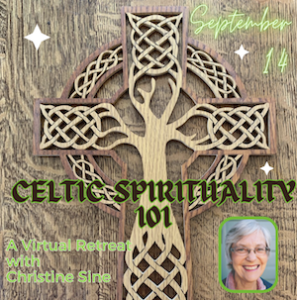 Celtic Spirituality 101
Celtic Spirituality 101
September 14, 9:30 – 12:30 (Pacific Daylight Time) will include a basic exploration of Celtic spirituality, prayers, learning about some of the Celtic saints, and reflections on how to bring the sacred into our daily lives. This introduction by Christine Sine to Celtic spirituality, a theological tradition that stems back to the 4th century will be presented as a virtual retreat.
Well, the weather changed and it is no longer raining. This last week we had a few more days in the high 70s and low 80s and are expecting several more over the next week. Now I don’t really believe that God changed the weather because of my prayer last week but I do appreciate the good weather and the luscious tomatoes it resulted in. We are enjoying BLTs and tomato salads almost every day and I now have our dehydrator set up to help me preserve the bounty. As well as that, at our community meeting on Monday we harvested our Asian pears and some of our apples adding them to the bounty of plums I harvested last week.
I am really enjoying my awe and wonder walks at the moment and the picking of tomatoes adds another glorious dimension to these. I love to grow a number of varieties and the colours, patterns and sizes this year are mesmerizing. I have spent quite a bit of time just admiring my harvest.
Wow. This is a season of great abundance and the generosity of our amazing God a very fitting way to enter September which is increasingly being celebrated as the Season of Creation. I talked about this in my Meditation Monday – Celebrating With All Creation and grieved the destruction of places like the Great barrier Reef in Australia. This post also provides links to books I recommend reading for the season and to resources made available by the organization Season of Creation. Well worth checking out.
Last week we launched the first of our Celtic series of podcast episodes. Tom and I really enjoyed the chance to kick off this series together and I hope you enjoy it too. This week I interviewed John Philip Newell and Christine Valters Paintner and feel that I am extremely privileged to be able to interact with these fascinating people. My interviews could have gone on for ages. Both of them were very engaging and filled with wisdom. However you will need to wait a few weeks to hear these interviews. Next in the Celtic lineup is Jeff Johnson, a Celtic musician from Camano Island. If you want a sneak preview of his music check it out at arkmusic.com
I am also getting ready for the Introduction to Celtic Spirituality online retreat on September 14th. This should be a fun and instructive session in which we look at the legacy of this often neglected stream of Christianity which kept faith alive during the dark ages of Europe. We will interact with some of the Celtic saints like Patrick and Columba and Brigid, write prayers, and learn from one another. I hope you can join us. There is a special discount for paid subscribers which can be accessed through Saturday’s substack post: Introduction to Celtic Spirituality.
Obviously I am really immersed in Celtic Christian Spirituality at the moment. My desk is crowded with Celtic books that I am thoroughly enjoying revisiting. It is such a fascinating and inspirational stream of Christian faith and a perfect lead up to Christmas. MY book Celtic Advent: Following An Unfamiliar Path, is taking shape rapidly with the help of good friend Tom Balke in Canada who is reading and commenting on each section. His encouraging feedback is very motivational for me. In Saturday’s post I also published another couple of reflections from week 2. I look forward to hearing your feedback as it helps me craft this into a useful resource. Those who give me helpful feedback will receive a free copy of the finished product.
On Godspacelight Lilly Lewin’s Freerange Friday: God Loves Us In The Mess really spoke to me as I am really living in a mess at the moment. Like Lilly I often pause to do the things that help me slow down and ground myself. She painted the view outside, then I took a walk around the neighborhood to try to figure out what was bothering her beyond my mouth! I took time to notice things along the way. Lilly is starting to prepare for another Finding Your Thinplace Pilgrimage to Iona and another to California Wine Country next year. You might like to check it out.
I appreciate your prayers this week for the book I am working on, for the podcast and for my ongoing journey here on Substack. As I immerse myself in the Season of Creation, in Celtic Spirituality and in my awe and wonder walks around the garden a poem that I wrote a couple of years ago came to mind. They have been good words for me to reflect on this week. I hope you find them helpful too.
Have we lost the words of wonder
to speak of God’s enduring love
To convey the warm embrace
that holds us through the nights
of joy and sorrow.
To share the touch that reaches out across the universe
To says I care.
Have we lost the images
That shimmer with God’s glory
And dance across our minds
With bright and shining clarity
To fill our souls with beauty?
Have we lost the silence
That holds the peace
Of resting in this moment
Of God’s created wonder.
Unique in its beauty
Alone in its glory
Yet bound to the whole world.
Many blessings
Christine Sine
by Christine Sine
September is the month that is increasingly being called the Season of Creation. Much to my delight this celebration, that began in Australia and New Zealand is creating a movement that is spreading around the world. I love these beautiful liturgies and other resources that have been created to help focus our worship and bring us to a recognition of our responsibility.
It was our service at COTA several years ago however that really brought this season into focus for me. This beautiful font dominated the front of the sanctuary while images of coral reefs with fish nosing around the gently swaying coral held our attention above. It was the font however that mesmerized me. The giant clam shell from which it is made could have come from the Great Barrier reef and I was reminded as I gazed at it of both the beauty of the reef and of its destruction. Many believe that the reef is dying. And climate change is the culprit. I have visited the reef twice in my life, once as a child and again about ten years ago. Both occasions are indelibly etched on my mind. I hate to think of this beautiful and awe inspiring wonder disappearing. I grieve for so many reefs and other habitats around the world that face similar challenges.

Then my eyes shift to one of my favorite passages:
For God so loved the world he gave his only begotten son…
Like many of us John 3:16 was the first verse that I memorized. In my early days as a Christian it spoke to me of God’s love for me as an individual and gave me an assurance of personal salvation. As my faith grew and expanded however I realized that this interpretation was limited. I started pairing it with 1 John 3:16 Jesus Christ laid down his life for us. And we ought to lay down our lives for our brothers and sisters. Salvation isn’t just about me it is about God’s concern for all the people of our world, I reasoned.
As I read the passage today however, it was the first words For God so loved the world that really caught my attention. Not God so loved me or you or even humankind, but God so loved the world – this beautifully crafted masterpiece created lovingly by God’s own hands which we were created to look after. I started to think – maybe we have salvation all wrong. I don’t think that salvation is about individual soul rescue at all. It is more about God’s desire to redeem all creation and bring it back to the wholeness, abundance and harmony of the original creation – the restoration of shalom. I think part of our sinfulness is that we no longer take our role as creation stewards seriously – instead of tending and nurturing we consume and destroy.
Perhaps God’s plan for our salvation as human beings isn’t so that a few more souls can get out of hell (though that is obviously a great thing). Maybe God saves us so that we can once more become the responsible caretakers and stewards that God intended us to be.
As I watch the devastation caused by hurricanes and forest fires over the last few years, s and ponder the affects of climate change and our complicity in it I wonder how long it will be before we really take our need for salvation seriously. How long will it be before we recognize the groaning of creation around us as a symptom of our need for transformation into responsible citizens and nurturers of God’s good earth?
Here are some books to check out during this season:
Sacred Earth, Sacred Soul – by John Philip Newell
Earth Our Original Monastery – Christine Valters Paintner
Shalom and the Community of Creation – Randy Woodley
Living in an Icon – Robert Gottfried and Fredrick W Krueger
NOTE: As an Amazon Associate I receive a small amount for books purchased through links above.
If you don’t like dentists…skip the first two paragraphs …
This week began with the dentist…a tooth extraction of a broken tooth that cannot be repaired. So I will need an implant( and sadly it wasn’t even the tooth that we’d been watching but another one!) …but I will have to wait another three months for that because the extraction was more “traumatic” than the dentist anticipated. Thankfully it’s not a front tooth so I don’t feel like a hillbilly everyday! And thankfully the removal wasn’t traumatic in the pain department. And since this tooth has been broken since July, I have learned to live with out it it just feels weird.
I don’t about you but dentist offices aren’t my favorite places to go.
I’m very grateful for their expertise and I am grateful that I am able to afford to go. I am also grateful for all my friends who prayed for me not to have a panic attack because that used to be a real possibility when dental work was involved. I realized that it matters who the dentist is and their personality. I think the dentists of today are much more compassionate that those of my childhood and for that I am extremely grateful. It took me a good while to find the right ones!
This post isn’t about dental work…but about the messiness of life. Let’s just say that replacing teeth wasn’t on my list for this summer. I had lots of plans. I just found my list of things I wanted to do and accomplish and the list has only a couple of check marks of completed tasks.
Life just happens that way sometimes. And honestly it’s been rather frustrating! I hadn’t anticipated my dad’s illness, the emotional roller coaster of miracles, caregiving, out of town family visits and then the recovery time necessary from this. My August has been in the “slow lane. “ I had hoped to clean the office AND the garage, but the one week we had nice temperatures for being outside was the week I was out of town working on next year’s pilgrimage! I am not a person who appreciates Nashville summers, even though I grew up here! It hit 100 yesterday! WAY TOO HOT for me to want to do anything!
I have had lots of details to work on that just haven’t happened. And when I procrastinate, it just makes things worse!
MESS….in the house, in the world, and in my head!
So I did the things that help me slow down and ground myself. I painted the view outside. And then I took a walk around the neighborhood to try to figure out what was bothering me beyond my mouth! I took time to notice things along the way. The zinnias In the front yard, the butterflies, the sun moving higher in the sky. I also noticed the bracelet on my wrist made of braided yarn from last year’s Finding Your Thinplace pilgrimage to Iona. I have had this bracelet on my arm for an entire year! This week last year, I was on the beautiful Island of Iona curating an experience of rest and reflection for people who needed to refill their cups and remember that JESUS IS WITH US IN THE MESS OF LIFE!
I sure needed this reminder today!
I need to remember that life is messiness. Life is interruptions. Yes that’s just reality.
BUT JESUS IS WITH US IN THE MESS!

Reminder that Jesus is with us in the MESS
I got to hear Father Greg Boyle speak a couple of weeks ago and I am reading his book The Whole Language: The Power of Extravagant Tenderness.
It’s a powerful book about how God really views us and how we can view ourselves and others through the lens of love and tenderness.
Father Greg reminds me that Jesus, that God, isn’t judging me today for all the things that I haven’t done on my list.
God is with me and is loving me just as I am, right where I am, just as I am. And God is just happy to be with me!
“ God doesn’t require anything of us except to believe this love that will change everything. This will guide what we do, not be a list of requirements.” Father Greg
“Behold God Beholding you and Smiling! “ Father Greg
Can I really choose to believe this today?
YES! Today I will choose the God of Abundant love JESUS!
Today I will choose to be still and to notice the God of love who brings butterflies and hummingbirds to remind me of God’s abundant love.
Today I will believe that God is beholding me and smiling!
“And, yes the god who thinks “we haven’t did enough” is the wrong god. Too small!” Father Greg Boyle P. 7
You can join us on Finding Your Thinplace Retreat Pilgrimage NEXT SEPTEMBER! For more information or questions findingyourthinplace@gmail.com Only 10 spots available . Sept 1-8/9, 2025! Reserve your spot today!
I am sick of the rain. It didn’t take long, but what a week ago was a welcome respite from our hot, dry summer has now become a problem. Cool weather and constant rain are not good for ripening tomatoes. They split, they rot, and are more susceptible to disease. So this week I am not praying for rain, but for more hot dry days to ripen those delicious fruits that are the highlight of the Seattle garden. I think that growing tomatoes is a right of passage that says “yes I truly am a Seattleite.”
Isn’t it amazing how fickle we are and how quickly our opinions can change based on our own often selfish desires? The BLT’s and mozzarella salads tomatoes provide for immediate consumption and the sauces I make for winter soups and stews are wonderful, so I pray that God will change the weather to suit me. Now this is not really how I pray, but I do harbour these thoughts in my mind so you could probably call it a subconscious prayer. It does make me aware, however of how easily we can change our prayer life into a self-centered set of demands for God to do what we want.
Prayer can help keep our lives centered on God in a way that minimizes self-centered prayers and expectations of our Creator. That is part of what I appreciated this week as I disciplined myself to use waiting times as times of prayer. As I mentioned in my Meditation Monday – What Do We Do With Waiting? “What suddenly struck me last week is that we can transform the impatience of mundane waiting into the joy of Godly waiting. All it takes is a little preparation and spiritual discipline.” I talked about the breath prayers I found so helpful this week in the many situations that involved extended waiting. I certainly found them to be helpful. I hope you will too.
A lot of you identified with my post Spiritual Practice of Painting Rocks on Friday. I loved to see the painted rocks several of you shared and even learned a new tip to help make my painting more professional from Claudia Gregoire . She uses nail dotters, a manicurist’s tool for placing just a dot of paint on a nail.
Today we launch another Liturgical Rebels podcast episode and the beginning of a series on Celtic Spirituality. As I mentioned last week, in this first episode my husband Tom and I reflect on our own journeys into Celtic spirituality. The upcoming sessions in this series include interviews with Celtic musician Jeff Johnson, theologians Christine Valters Paintner and John Philip Newell and Celtic artist Mary Fleeson. Make sure you tell your friends about this. It will be an inspiring series. This series is to prepare us for Celtic Advent which begins November 15th. As many of you already know, I love this extended Advent season which makes it possible for me to focus on the meaning of Christmas before we launch into the holiday hype.
This series also coincides with the Introduction to Celtic Spirituality online retreat on September 14th. I hope you have this date on your calendars as it will be a fun and informative session in which we look at the legacy of this often neglected stream of Christianity which kept faith alive during the dark ages of Europe. We will interact with some of the Celtic saints like Patrick and Columba and Brigid, write prayers, and learn from one another.
I continue to make progress on my Celtic Devotional and following advice from those who are reading along on Substack have shortened the name to Celtic Advent – Following An Unfamiliar Path. This week I published another 2 reflections, creating shorter posts that I think are easier for people to digest and give me feedback on. It is a very enjoyable project to work on though I keep getting distracted by my many fascinating resource books. For those who are interested in exploring Celtic spirituality in more depth, you might like to check out this resource list which we put together a few years ago. To Bless The Space Between Us by John O’Donahue is a wonderful place to start. It is a beautiful collection of prayers in the Celtic Tradition that I heartily recommend. The prayer at the end of this email, which I have found helpful in my own season of grief is a great prayer to share with any you know who are grieving. You might also like to check out some of our other Celtic resources on our Celtic resource page or download our free resource – An Introduction to Celtic Spirituality.
On Godspacelight we expect to increase the number of posts next week but are still in summer mode until then. Lilly Lewin’s Freerange Friday – The Nest of God is excellent. First check out her stunning artwork – what Lilly calls doodles but which most of us consider works of art. Her reflection on Psalm 84 and her questions “When you imagine the dwelling place of God, what do you picture?” And “What kind of NEST do you need this week?” Are well worth reflecting on.
Let me end with this beautiful poem or you might like to listen to it here:
Though we need to weep your loss,
You dwell in that safe place in our hearts
Where no storm on night or pain can reach you.
Your love was like the dawn
Brightening over our lives,
Awakening beneath the dark
A further adventure of color.
The sound of your voice
Found for us
A new music
That brightened everything.
Whatever you enfolded in your gaze
Quickened in the joy of its being;
You placed smiles like flowers
On the alter of the heart,
Your mind always sparkled
With the wonder at things.
Though your days here were brief,
Your spirit was alive, awake, complete.
We look toward each other no longer
From the old distance of our names;
Now you dwell inside the rhythm of breath,
As close to us as we are to ourselves.
Though we cannot see you with outward eyes,
We know our soul’s gaze is upon your face,
Smiling back at us from within everything
To which we bring our best refinement.
Let us not look for you only in memory,
Where we would grow lonely without you.
You would want us to find you in presence,
Besides us when beauty brightens,
When kindness glows
And music echoes eternal tones.
When orchids brighten the earth,
Darkest winter has turned to spring;
May this dark grief flower with hope
In every heart that loves you.
May you continue to inspire us:
To enter each day with a generous heart.
To serve the call of courage and love
Until we see your beautiful face again
In that land where there is no more separation,
Where all tears will be wiped from our mind,
And where we will never lose you again.
(John O’Donahue To Bless The Space Between Us)
Many Blessings
Christine Sine
NOTE: As an Amazon Associate I make a small amount when you make purchases through links above.
As an Amazon Associate, I receive a small amount for purchases made through appropriate links.
Thank you for supporting Godspace in this way.
When referencing or quoting Godspace Light, please be sure to include the Author (Christine Sine unless otherwise noted), the Title of the article or resource, the Source link where appropriate, and ©Godspacelight.com. Thank you!

